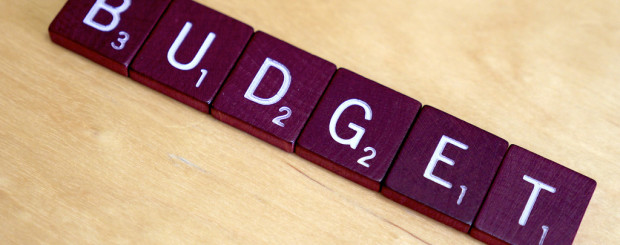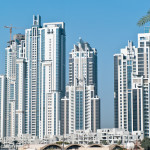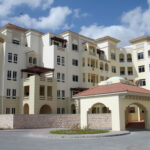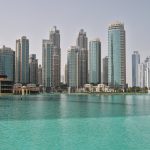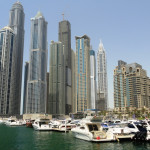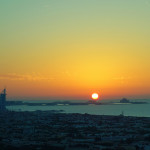Dubai on a Budget
Living in Dubai on a budget is possible. Many people have to do it as not all the residents of Dubai are highly paid. Just ask the taxi drivers what they earn a month or the security guards in your building. Many people live on salaries of less than AED 3,000 a month although that usually means that their housing is provided.
The big costs in Dubai are housing and schooling. If you have these covered by your employer, then the costs you face are at your discretion. If not, single people can get relatively cheap housing by sharing an apartment or an older villa, but mixed flatting is frowned on. Some parts of Dubai are inexpensive to rent an apartment in because the accommodation is considered old. Apartments over twenty years old are usually cheap and these can be found in Deira near Bani Yas Square and Maktoum Rd, the old part of Dubai. They are often also quite large, but there may be problems with the air-conditioning or the fit of the windows making the electricity bill quite high in the summer. Newer but inexpensive apartments (for Dubai) can be found in the Al Warqa area near Mirdif. Mirdif used to be cheap and lacking in amenities, not now so look further out into the desert.
Schools will be expensive if you opt for western expat models. But the Indian schools are far more reasonable. They use a traditional teaching methodology that encompasses a lot of the knowledge transmission mode, but students do graduate and often pass International Baccalaureate exams.
Owning a car is not particularly expensive in Dubai. There are often specials available on new cars that include servicing for one or two years. There are other deals, so do look around. There are also plenty of secondhand cars available. These can be found quite cheaply at the times when people tend to finish their contracts and leave, such as May/June and December/January. There are various online sites where you might find a bargain. The issue with older vehicles is that they tend to suffer from cracks in the plastic interiors that are nearly impossible to get affordable replacements for. This wear and tear is due to the heat.
Petrol is inexpensive compared to Europe and the US, but not in comparison to some other Middle Eastern countries. Still, you do not have to make your choice of an SUV or a sedan on the basis of gas prices. But car insurance seems expensive unless you also have to insure a jalopy in Italy, as I do. Someone has to be pay for the little knocks that occur on a daily basis not to mention the number of cars that are cancelled (written-off) each year. You will only get third party offered to you on older cars, although it is worth arguing your case. I still have comprehensive on my eight year old SUV.
There are some revenue gathering charges, some of which are a form of road user tax. Every year you must have your car inspected and re-registered. The inspection fee is AED 120 and re-registration is AED 320. Parking meters have proliferated in Dubai, so if you do not get parking with your accommodation and work, factor this in. It is AED 2.00 an hour from 8.00-1.00 and 4.00-8.00. Also, Dubai has introduced a toll charge – Salik – on certain main roads, but it is possible to avoid this. You can cross the Creek on the magnificent Business Bay Bridge for free or take the revamped Garhoud Bridge at a cost of AED 4.00 a time. Sheikh Zayed Rd, the main road that you would take to move relatively quickly along the part of Dubai from Bur Dubai through to Jebel Ali is fully covered by Salik. The alternative ring road, the 611 (also now called the Emirates Rd) is free and usually has fast flowing traffic at all times unlike Sheik Zayed Rd, but it does swing out behind Dubai and means a longer journey.
Food varies considerably in price depending on where you shop and whether you buy local, regional or food with so many air miles it can travel first class forever.
Local food is grown in parts of the UAE. Previously, it was mostly herbs, peppers and tomatoes, but now it is possible to buy cucumbers, courgettes and eggplants as well. A lot of it is grown hydroponically and some of it is organic. The organic movement is really taking off here. And there is an organic supermarket/restaurant on Sheik Zayed Rd; however, I tend to buy my organic produce from the Co-op as it is cheaper.
By regional food, I mean food from nearby. A lot of food comes from Lebanon and Oman. The more reasonably priced potatoes come from Lebanon. Further afield, a lot of fruit and vegetables now come from Pakistan, India, Iran, Egypt, Tunisia, South Africa or Kenya. It is an international experience on a daily basis eating in Dubai. But the pricier items come from the USA or Europe, and a lot of hydroponic food comes from Holland. Apples tend to come from the USA all year round. I do not know how they manage that. But they come seasonally from France, Italy and New Zealand. Spain is my country of choice for oranges at about a quarter the price of the bigger, less tasty American ones. I spend a lot of time comparing prices of fruit with country of origin, but in the end my decision is usually based on flavor, and it is not the case that the most flavorsome foods are the most expensive. How lucky is that?
Meat, like fruit and vegetables, varies according to country of origin. The cheaper meat comes from India and Kenya. But most of the meat comes from New Zealand, Australia and more recently the UK, Ireland and Argentina. The food miles really do add up, but I do not find the prices exorbitant when you consider the distances traveled. Cheese takes a similar route to the UAE, and seems expensive to me.
Pulses such as lentils and dried beans are a really good price. Nuts, especially almonds, have inflated in price greatly but that may be due to their reputed health benefits. Dried fruit is reasonably priced.
It is possible to eat well for less than you might imagine considering the distance much of the food travels. Everything is available all year round, which is not necessarily a good thing but that is another article.
One of the choices you need to make when considering the cost of food is what supermarket to go to. The big names starting with the most expensive are: Waitrose, Spinneys, Carrefour, Hypermarket, Choitrams and the Co-op. Sometimes that food I really crave has to be bought no matter the price and that is when I head for Waitrose.
Finally, it is also possible to shop at fish markets as well as fruit and vegetable markets depending on the time of year and the area you live in. Apart from during the hellishly hot part of the summer, there are several organic markets in Dubai where you can buy from the grower.
I have not even touched on clothes. You can spend as much or as little as you like on clothes in Dubai and have a wide range to choose from. But, on the whole, the price in dirhams will seem high if compared to the original price in the UK especially when you consider that there is no VAT in Dubai. Keep in mind that there are really good sales and an excellent Outlet Mall. It is all here, and half the fun is looking for it.

